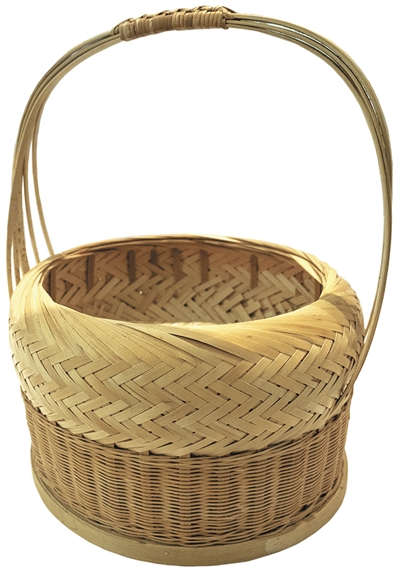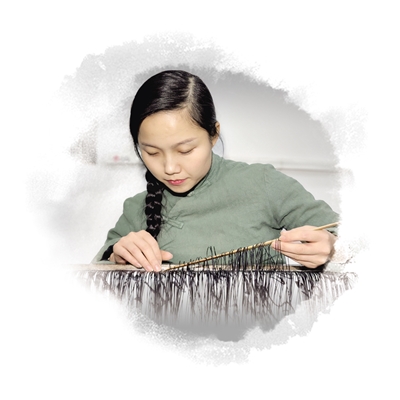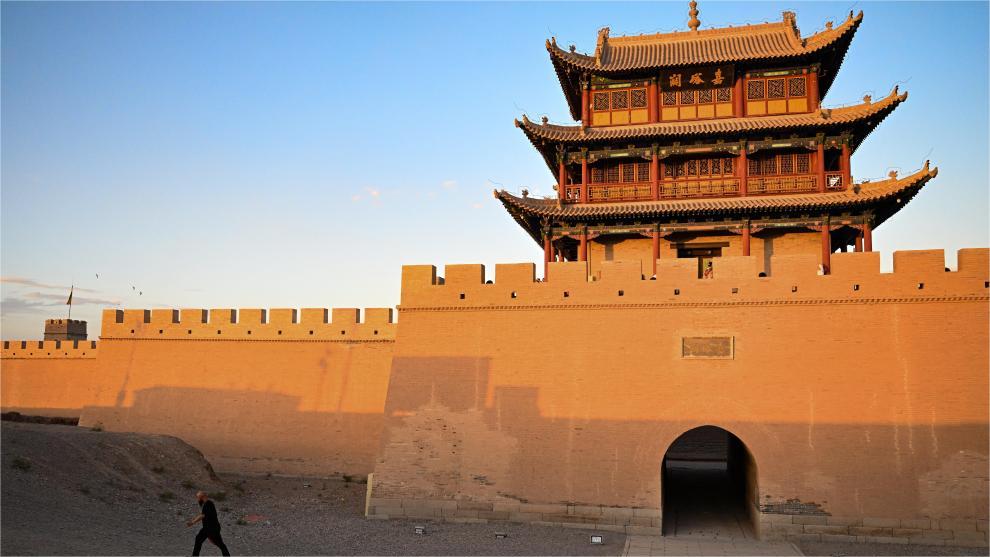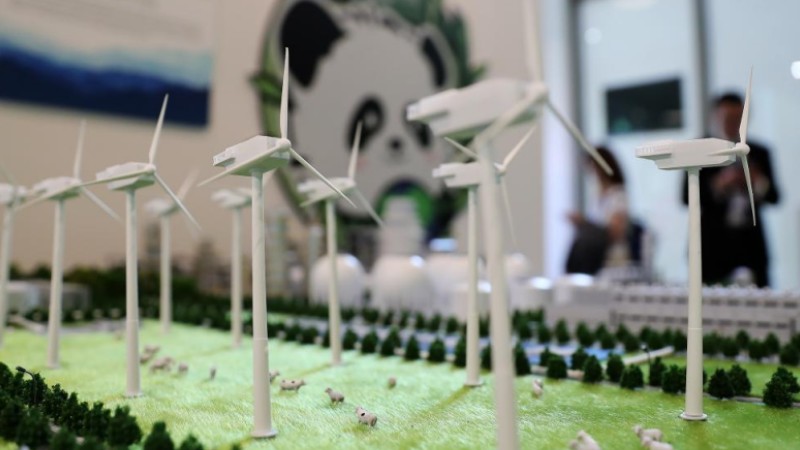Chishui city in SW China's Guizhou paves way to prosperity through bamboo industry
Chishui city, situated in the northern part of southwest China's Guizhou Province, boasts of an area of 2.78 million mu (185,333 hectares), with a significant portion dedicated to bamboo forests, covering 1.33 million mu. The city has a population of nearly 230,000, around 180,000 of whom are engaged in the bamboo industry.
In recent years, Chishui city has made great efforts to develop the bamboo industry, creating a green ecological barrier in the upper reaches of the Yangtze River and paving a unique path to prosperity for the local people.

Photo shows bamboo forests in Chishui city, southwest China's Guizhou Province. (Photo/Yu Dejiang)
Song Yunjun, a villager from Datong township in Chishui city, has been growing bamboo for 12 years. He never expected that one day his bamboo would be turned into fruit trays, computer packaging, and other products, and be exported to the world.
"In the past, many farmers relied on selling timber as their main source of livelihood, and had to cultivate crops on steep slopes. However, this practice led to a depletion in trees and soil degradation, causing severe stone desertification," explained Song.

Photo shows bamboo-weaving handicraft. (Photo courtesy of the publicity department of the Communist Party of China Chishui municipal committee)
In 2001, Chishui city opted to convert steep slopes with an inclination of over 25 degrees into bamboo forests. This approach was aimed at combatting soil erosion and helping farmers increase their earnings.
In the same year, Song planted 4 mu of bamboo on a hillside. However, shortly after planting the bamboo, he began to doubt his decision, thinking that growing crops would be more profitable.
Village officials explained the policy of returning farmland to forests and the associated subsidies to local farmers, encouraging them to consider the long-term benefits of planting bamboo.
Song persisted for three years and are now reaping the benefits. "Bamboo has become a valuable asset. I can earn an average of at least 1,000 yuan ($140) per mu. Everyone now sees bamboo as a lucrative opportunity," he said.
Chishui city has seen a significant growth in its bamboo forest area, reaching 1.33 million mu. The forest coverage rate has increased from 63.4 percent in 2000 to 82.51 percent today, making the bamboo industry a key pillar of the city's development.
Taison Group, located in Chishui city, processes approximately 1.4 million tonnes of bamboo annually, producing 360,000 tonnes of bamboo pulp each year and generating annual output worth over 2 billion yuan.

Photo shows bamboo-weaving handicraft. (Photo courtesy of the publicity department of the Communist Party of China Chishui municipal committee)
Since 2018, nearly 300 bamboo processing enterprises, including 16 large-scale ones, have been established in the city.
These efforts have laid the foundation for the development of various bamboo products, such as bamboo building materials, furniture, decorations, crafts, papermaking, and bamboo shoot processing.
In 2022, the bamboo industry's comprehensive output was worth 7.46 billion yuan, contributing over 60 percent to the regional GDP.
Chishui city is focusing on the production of pulp for molding and specialty paper. This focus is intended to expand the city's industrial chain and increase its added value.
In 2016, Bai Yan, head of packaging research and development (R&D) at Chinese computer giant Lenovo Group, was tasked with developing new bamboo fiber materials.
"At that time, the industry typically utilized low-cost foamed polyethylene for packaging and cushioning materials. In contrast, the cost of the new bamboo fiber material was three times that of plastic. However, considering the importance of sustainable development, 'replacing plastic with bamboo' was a crucial consideration," explained Bai.
Through extensive R&D efforts, Lenovo Group launched its bamboo fiber packaging in 2018. This innovative packaging solution offers many advantages, including its lightweight nature and exceptional protective capabilities.
Bai said the company has shipped over 16 million products in bamboo fiber packaging to more than 180 countries and regions worldwide.
Over the past five years, the company has been actively involved in the "replacing plastic with bamboo" initiative, resulting in a reduction of 3,737 tonnes of plastic packaging, Bai explained.

Yang Changqin, a provincial-level inheritor of Chishui's bamboo weaving craft, works on a bamboo-weaving painting. (Photo/Zhang Lang)
Yang Changqin is a provincial-level inheritor of Chishui's bamboo weaving craft. Her workshop creates bamboo handicraft such as bamboo earrings, woven bags, and cups, blending traditional bamboo weaving techniques with modern fashion elements.
"We receive numerous orders for customized bamboo products each year. In fact, the revenue generated by household bamboo weaving items like tea sets and wine sets has surpassed 20 million yuan this year, up 66 percent year-on-year," Yang said.
Photos
Related Stories
- Bamboo as an important, versatile tool in green drive
- SW China's Sichuan promotes bamboo-related industries
- China promotes bamboo as eco-friendly substitute for plastics
- Jingxi village: Invaluable assets in lush bamboo
- Turning millennia-old bamboo slips into decipherable clues
- Use of bamboo promoted as sustainable alternative
Copyright © 2023 People's Daily Online. All Rights Reserved.









